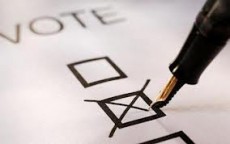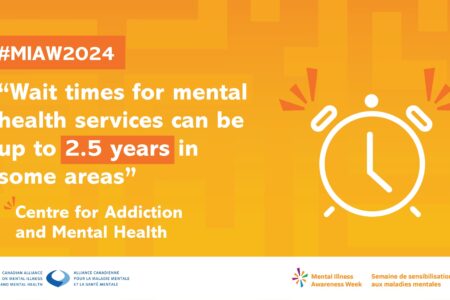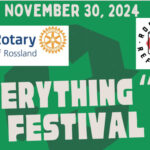Opinion: Electoral Reform -- What System Should We Have?
On Thursday, September 1, from 7:00 pm to 9:00 pm at the Fireside Inn at 1810 Eighth Avenue in Castlegar, this riding’s Member of Parliament will host a Town Hall meeting on Electoral Reform. As with any Town Hall meeting on any topic, the outcomes of such a meeting are more likely to be useful if people attending have done some research, educated themselves, and done some cogitating on the topic before showing up and mouthing off.
Electoral reform was a promise made by Prime Minister Justin Trudeau. That 2015 federal election, he stated, would be that last one held under the current “first-past-the-post” election rules, if he was elected. And he was elected.
Many people like the current system — some because it’s what they know; some because they think it favours their party; some because they have heard scary things about other systems. Some people like this system, even though it can give a strong majority position in Parliament to a party that wins only 39 percent (or so) of the popular vote, because they think that’s the way to “get things done.” They fear systems of proportional representation because they may require compromise and co-operation among political parties if none of them wins a true majority — one of the reasons that many other people favour some form of proportional representation.
Others favour proportional representation because it would result in a more accurate representation in Parliament of the popular vote; there would be fewer “wasted” votes — votes cast that don’t result in any representation in Parliament; there would be no need for “strategic” voting — voting for a second-choice candidate in order to defeat the least-preferred; and because they think it would result in a higher voter turn-out. Others point to the “pendulum” effect of first-past-the-post — first a right-wing government, then a left-wing government, each of which spends time undoing what the previous government put in place. Proportional representation, they say, would moderate that effect.
They point out that “first-past-the-post” works perfectly, but ONLY if there are only two political parties, and we have more than that.
Then we hear about what seems to be a dizzying array of different types of proprtional representation.
Well, how many types of proportional representation (“PR”) are there? Probably not as many as there are names for them. Wikipedia says that there are only two types of PR; but there are several variations on those two, as becomes evident from checking their page on the topic.
An organization called “Fair Vote Canada” has been working for many years to promote a fairer system of electing our government, without settling on one particular system. Recently, the organization seems to have become keen on a system they call “Rural-Urban Proportional,” an adaptation of a system suggested by Jean-Pierre Kingsley, a former Chief Electoral Officer of Canada. Kingsley, now 73, has not lost his interest in electoral fairness.
Here’s the “Fair Vote Canada” announcement, with links, promoting the “Rural-Urban Proportional” system and, of course, their organization, for readers to peruse and think about for themselves:
* * * * * *
“Fair Vote Canada announces a Rural-Urban Proportional system that will address unique Canadian Values.
“Canadian geography and population is vast and diverse. Every region has its unique features that need to be respected when designing a new electoral system. We have been listening to Canadians and have designed a hybrid voting system that addresses rural and urban values.
“Today we are announcing the development of a unique proportional electoral system designed specifically for rural and small-urban Canada: Rural-Urban Proportional Representation (RU-PR).
“This system will be one of three proportional systems that Fair Vote Canada will present to the Special Committee on Electoral Reform:
Rural-Urban Proportional Representation: http://www.fairvote.ca/ruralurbanproportional/
Mixed-member Proportional: https://youtu.be/D3guVBhKmDc
The Single-transferable Vote: https://youtu.be/hzkVPduMg3w
“Each system offers unique features that address certain values. Exploring an idea offered by Jean-Pierre Kingsley and building on the quality work of our previous citizens’ assemblies, Rural-Urban proportional blends the best features from both systems. It illustrates how any system can be tailor-made to address Canadian values.
“Rural-Urban Proportional Representation (PR) recognizes that voters in all ridings want to cast a vote that counts, but that proportional representation must be tailored to our geography. Rural-Urban PR is specifically designed to provide excellent proportionality while still keeping single-member ridings in a flexible number of rural and small urban areas. Unlike other systems, there is only a small change in size to these ridings.
“Jean-Pierre Kingsley, Canada’s former Chief Electoral Officer, suggested combining multi-member ridings for urban areas with single-member ridings for rural areas. We have added 15% of regional top-up MPs to make the results fully proportional. This Rural-Urban PR model also takes inspiration from Sweden’s system where locally proportional regions are made fully proportional by having another 11% of MPs added to top up the local results, subject to a 4% threshold to prevent too many micro-parties. Unlike Sweden, we add some single-member ridings.
“We believe Voter Equality is paramount in assessing any new Voting system. All systems offered by Fair Vote Canada address flaws in our winner-take-all voting system ensuring that voter intentions are respected, that all Canadians in every riding cast a vote in a competitive race, and that as many as possible contribute directly to electing an MP. This is the only way to respect the right of each citizen to equal representation in the legislature.
“Fair Vote Canada (FVC) is a grassroots, multi-partisan, citizen-run organization for electoral reform. We are supported by over 65,000 Canadians, 35 prominent advisors, 40 regional teams and chapters, and over 500 Canadian academics. Recently, we helped found the “Every Voter Counts Alliance,” which represents millions of Canadians and independent organizations who care deeply about this issue and are calling for equal and effective votes.”
* * * * * *
Now, if you read and think about all that, will we be seeing you at that town-hall meeting in Castlegar on Setpember 1? Friends don’t let friends drive alone, so please do car-pool to reduce our carbon footprint.

























